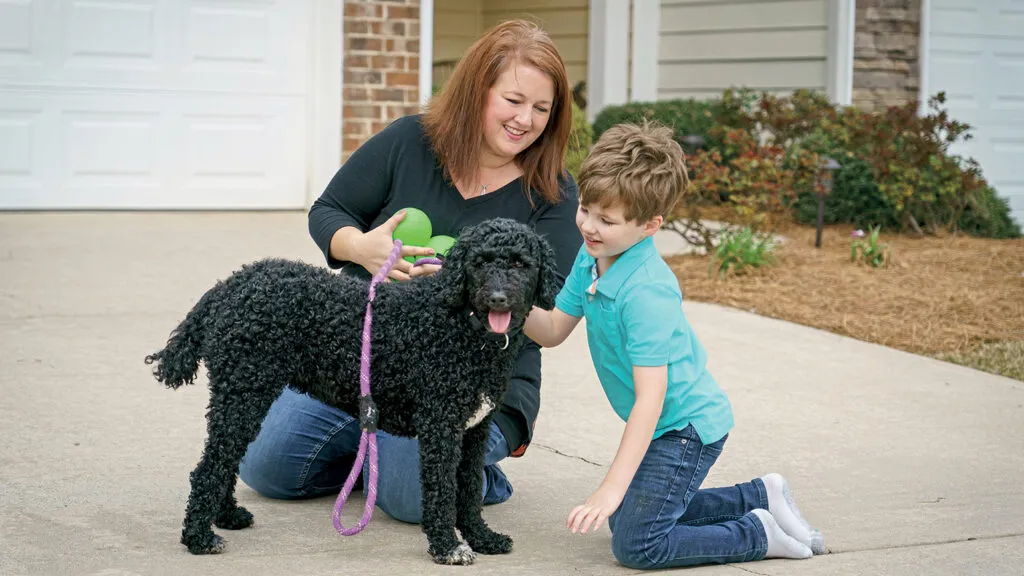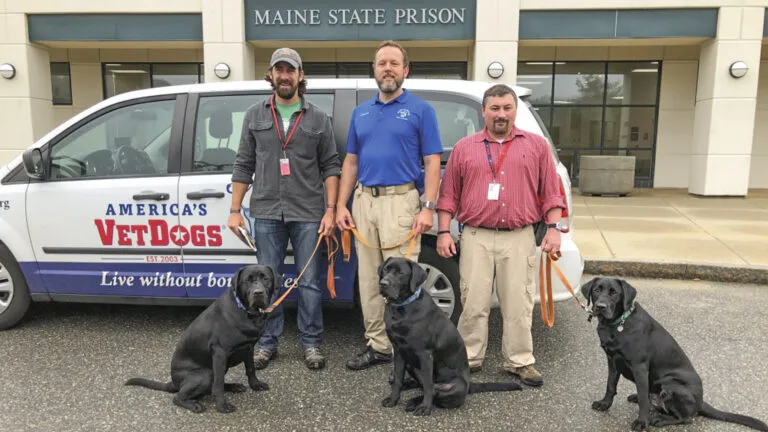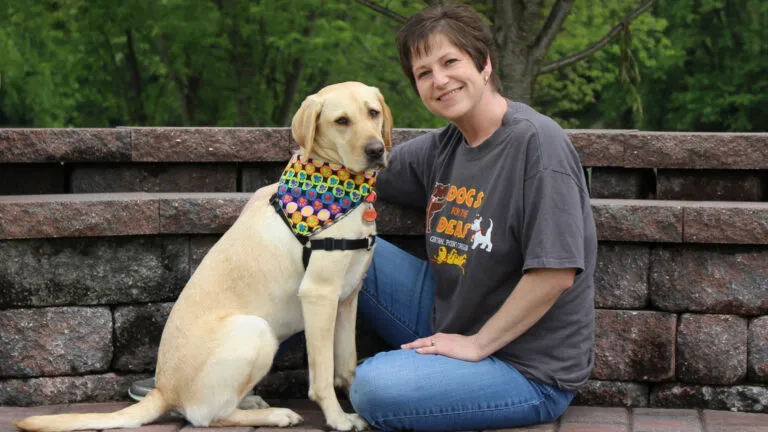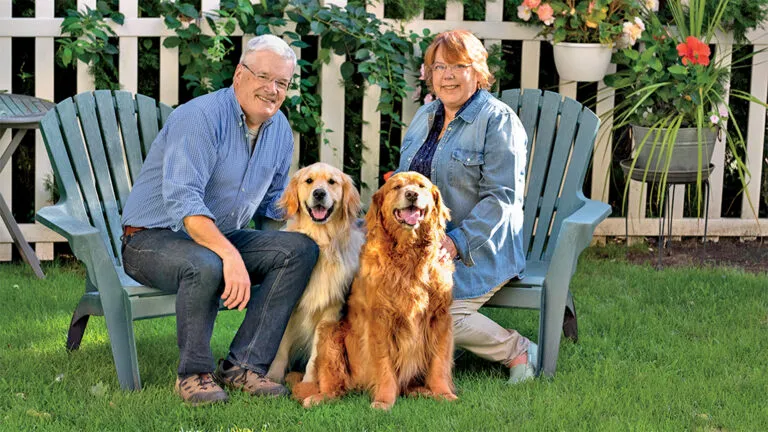I’m a talker—I have a habit of talking to every person I see—but that afternoon in March 2015, I sat beside my husband, Andy, on the 45-minute drive home from the Marcus Autism Center in Atlanta without saying a word. It was the most deafening silence of our 11-year marriage. We were both so overwhelmed, we didn’t know what to say.
I glanced back at our two-and-a-half-year- old son, Wesley, asleep in his car seat. We’d had him checked out because of his continuing obsession with letters, numbers and counting things, and his seeming indifference to communicating with people, even though he had an enormous vocabulary. Wesley had spent the day being assessed by a team of specialists. They’d diagnosed him with autism spectrum disorder.
A stress migraine pounded my temples. Could I be that mom? The one who could educate myself, advocate for our son, intervene when necessary. I am not your girl, God, I kept thinking. I can’t be the mom Wesley needs. He deserves someone better, someone more capable.
I’d been given pamphlets and instructions and suggestions and told to sign up for classes that I knew we could never afford. The full written report on Wesley wouldn’t arrive for a few weeks, and already I was failing him. Out of everything the specialists had said, the only words I could remember were socialization and involvement—key for Wesley to develop social skills. In the car, I desperately brainstormed ways to make his world more social.
The weirdest, most off-the-wall idea came to mind, so weird that I blurted it out. “We need a dog!”
Andy looked at me as if I were crazy. “What are you talking about, Rachel? You don’t even really like dogs, and I’m allergic.”
That was true. I’d had bad experiences with dogs growing up, not exactly a Lassie kind of childhood.
“And how on earth are we going to afford a dog right now?”
I sighed. “You’re right, but…”
He shook his head. “I can’t believe with all the talk we had thrown at us today about therapy, speech intervention and preschool classes, your one takeaway is that we need a dog.” But somehow I couldn’t shake the idea. Maybe I was cracking under the stress already.
A couple weeks later, I was outside playing with Wesley and Sam, our older son, when a woman with a medium-size, black curly-coated dog walked by. Must be a new neighbor. Like I said, I talk to everyone I see. “Hi!” I called and introduced myself.
She stopped. “Hi, my name is Rachel too and this is Oliver,” she said. “I can tell Oliver would love to play with your kids. Would that be okay?”
I nodded. The dog frisked between the boys. He was so gentle; he didn’t jump on people the way I’d seen a lot of dogs do. I watched, amazed. It was as if he knew exactly how careful to be with each of them. “What breed is he?” I asked.
“He’s an Aussiedoodle,” the other Rachel said proudly. “A mix of an Australian shepherd and a poodle.” Then she continued, “He was bred by a woman who has three autistic sons. She found that Aussiedoodles work perfectly as service and therapy dogs. Plus, they’re hypoallergenic.”
Was this for real? “We need an Oliver, stat!” I said. It turned out that the breeder lived in Blairsville, just two hours away in the mountains.
I couldn’t believe it. What I do believe in are divinely orchestrated situations—I just knew that God was setting this up for our family. Wait until I told Andy!
The next day, I called the breeder, Robin, at Big Doodle Dreams. We spoke for more than an hour. She told me how much people with autism could benefit from service dogs; I’d had no idea. Everything was coming together, I thought.
But a few days later, before I could get Andy on board, Wesley fell and broke his femur, the thigh bone, in his right leg. He ended up in a body cast for eight weeks. He couldn’t move. Couldn’t go to speech therapy or to school. Couldn’t socialize, even if he wanted to. Or play with a dog.
I read up on neurodiversity and how Wesley’s unique way of thinking, learning and relating should be embraced. Although he struggled to answer simple yes-or-no questions, he had already taught himself to read. At two! He could spell words like lopsided and pumpkin in Scrabble tiles. So what if he got his pronouns confused?
Finally the body cast came off. It took three more weeks to help Wesley walk again. Only one obstacle remained to getting our family’s dream dog: money. Then out of the blue, my sister said she wanted to buy us the dog.
Now the decision was up to Andy. I explained to him that Aussiedoodles tend to be hypoallergenic. They also tend not to shed, so no worries on that front.
“Do you really think a dog will help Wesley that much?” he asked.
“Yes!” I told him everything the breeder had told me.
“Okay, then. Get the dog.”
I called Robin right away, but by then she had only one puppy left, which she’d planned to keep her for herself. “Please,” I begged. “My son needs this dog. We can drive out to Blairsville and get her right away.”
There was a pause, only for a few seconds but seemingly endless, as if everything hung in the balance. “Okay,” Robin said. Boy, when God is ready, get out of the way!
We brought Josie home the third week in December, an early Christmas present for the boys. A black, curly-haired ball of energy, she pranced between them. Sam immediately petted her, but Wesley hung back—which wasn’t surprising because he always has to be the one to initiate any contact. He busied himself lining up the votive candles and counting them.
Christmas, then New Year’s, came and went. I worried that Wesley wasn’t bonding with Josie. He just didn’t seem that interested in her, no matter how adorable she was. But then I began to catch Wesley petting her when he thought no one was looking, usually in the back seat of the car.
Four months after we’d gotten Josie, I took the two of them out for a long play session. By the end, they were both exhausted. As soon as I put Wesley in his car seat, he fell asleep. He slept the whole way home, with Josie leaning her head on his shoulder. That’s when I knew they had finally bonded. One of our biggest challenges was that Wesley had no sense of danger and didn’t understand to “look both ways.” He would dart out into the street without warning. I was terrified he’d get hit by a car. Josie solved that problem. We tethered Wesley to her by tying the leash around his midsection. Josie was able to keep him safely on the sidewalk with us whenever we went out.
We didn’t formally train Josie as a service dog. But she has proven to be exactly what Wesley needs. When he sits on the stairs, crying, because he’s having a hard day or is in timeout, she sits quietly next to him, watching him with her soulful dark eyes. If he wants to reach out and hug her, he can. If not, Josie gives him his space; she instinctively knows she can jump in everyone’s lap in the house except his. Once or twice, when Wesley was having a meltdown, Josie lay down on him, effectively a weighted blanket—something children with autism find very calming.
The best thing about having a dog is that kids come to you. Even the daily walk to the bus stop provides a fantastic opportunity for Wesley to socialize with other children. Kids pepper him with questions about Josie—How old is she? Can I pet her?—and we practice his answers at home so he’s more comfortable talking in public.
Wesley and Josie share an aversion to loud noises, and fireworks are the absolute worst. Josie actually goes into hiding. One evening two summers ago, Andy wasn’t home from work yet, and Sam wanted to watch our neighbors’ Fourth of July fireworks. I ran back and forth between Sam in the yard and Wesley crying on the couch. Suddenly I saw Josie. She’d crept out of her hiding place and bravely planted herself beside Wesley. When Andy got home and I was finally able to stay with Wesley, Josie went back upstairs to hide for the rest of the fireworks. What an incredible comfort it was to know that she would never abandon Wesley when he was upset.
The first year of handling my son’s autism diagnosis was a year of grief and desperation and uncertainty. I felt as if God had given Wesley the wrong mom—how could I help him when I always felt like a mess myself? Josie showed me that I was capable of making good decisions for Wesley and for our family. I learned how to make peace with autism while also fighting it. How to celebrate Wesley’s gifts while finding ways he can overcome his challenges. Helping my son become the person God designed him to be—as I’ve become the mom God designed me to be.
For more inspiring stories, subscribe to Guideposts magazine.





